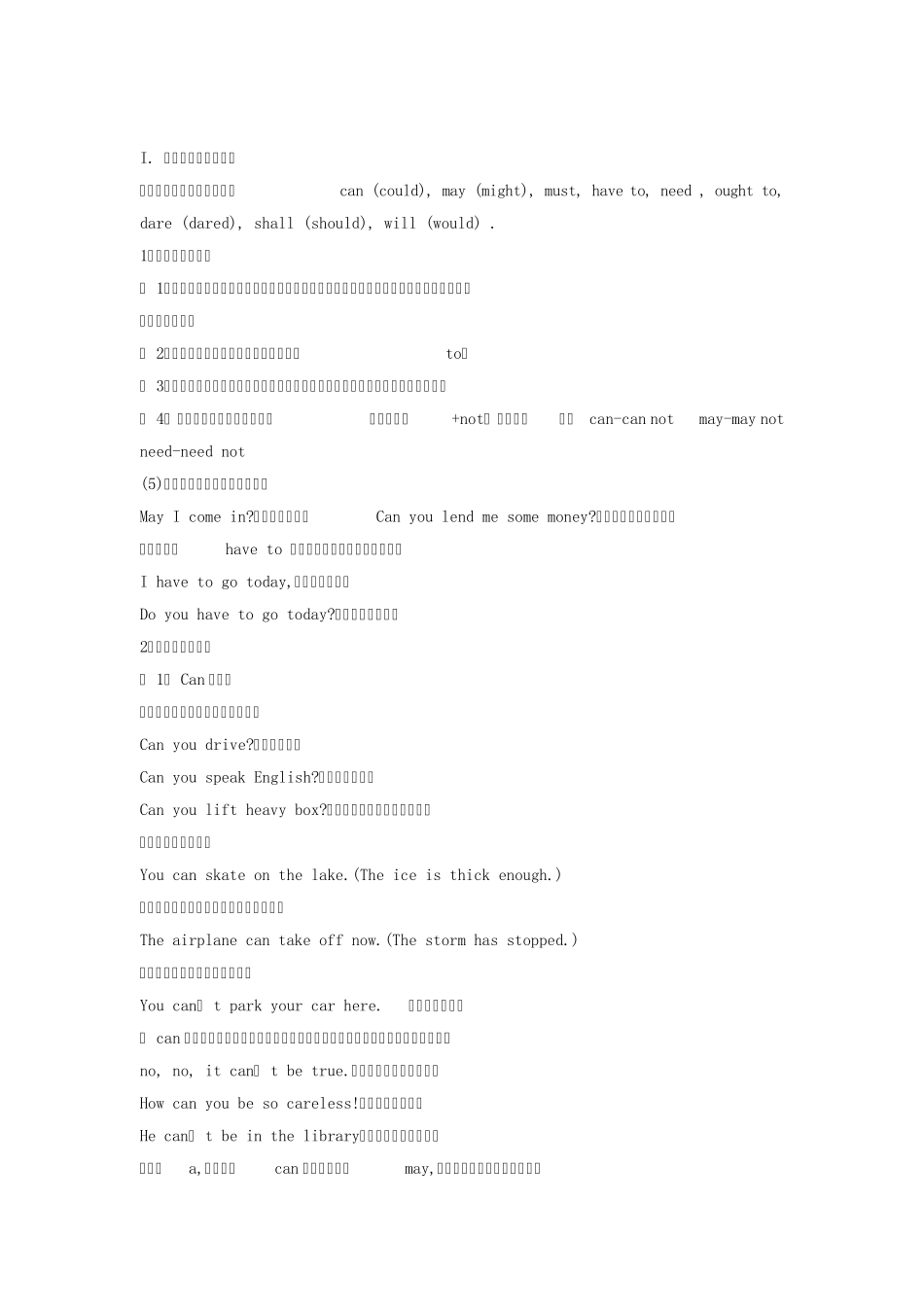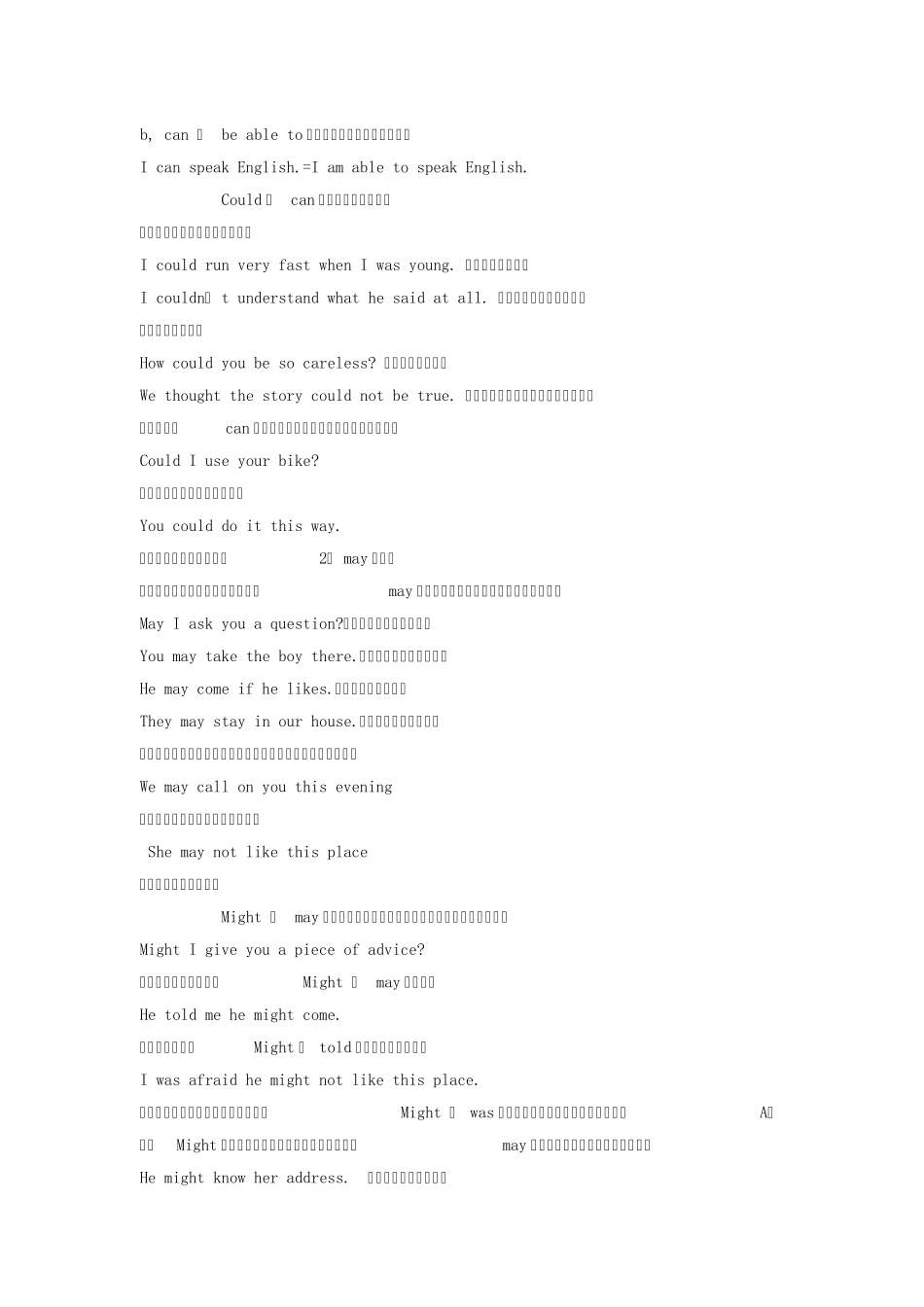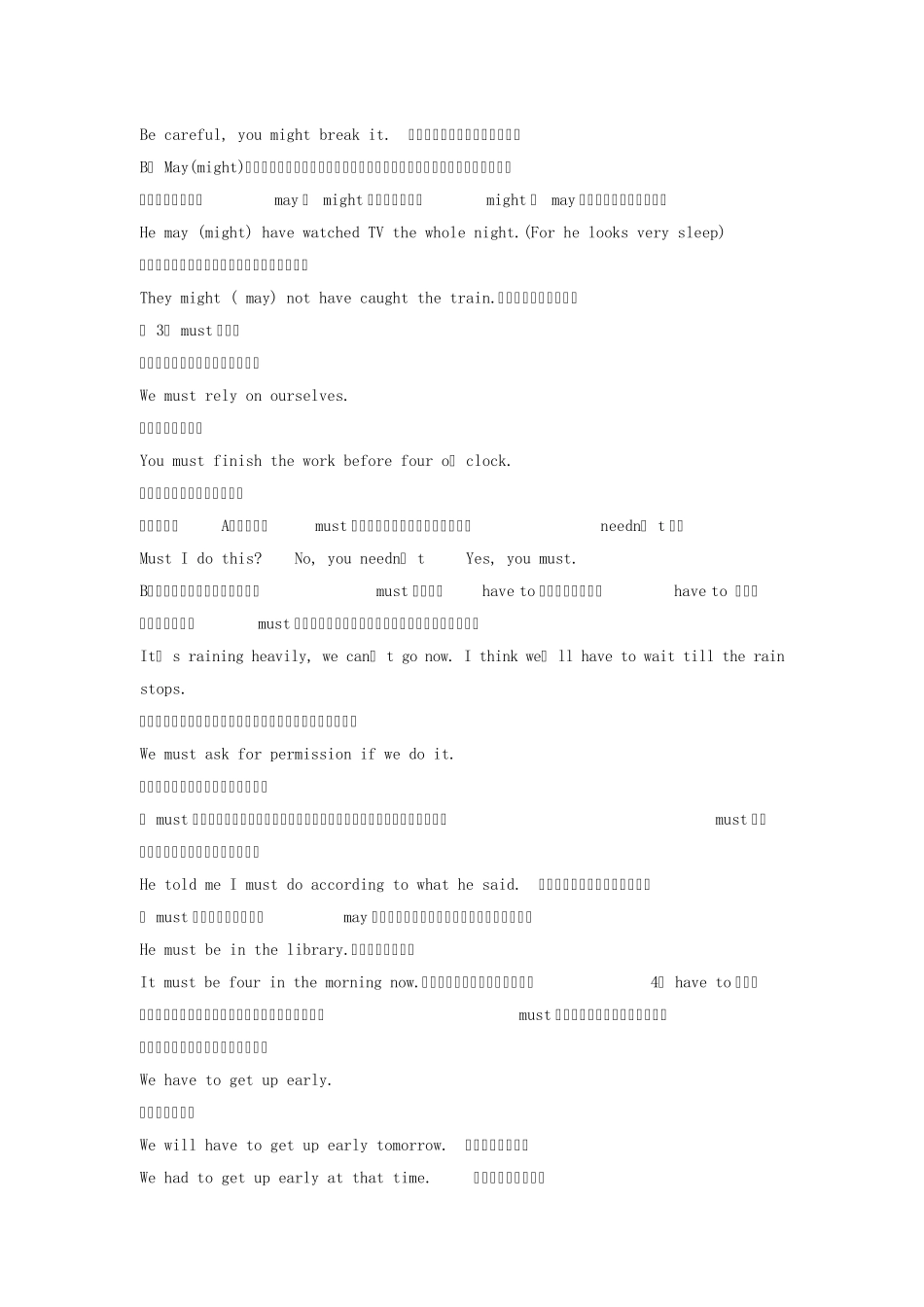I. 情态动词基本用法: 在英语中主要的情态动词有can (could), may (might), must, have to, need , ought to, dare (dared), shall (should), will (would) . 1.情态动词的特征 ( 1)情态动词本身有词义,但词义不完成,因此不能单独作谓语,只能和其他的动词原形一起构成谓语。 ( 2)情态动词后接的动词不定式一律不带to。 ( 3)情态支词不随人称变化而变(即不管是何人称,后面接的情态动词都一样)。 ( 4) 含有情态动词的否定都是由“情态动词+not” 构成的,如:can-can not may-may not need-need not (5)含有情态动词的疑问句的构成 May I come in?我可以进来吗? Can you lend me some money?你能借给我一些钱吗? 注意:含有have to 的句子变成疑问句时不同。如: I have to go today,今天我必须走, Do you have to go today?你今天必须走吗? 2.情态动词的用法 ( 1) Can 的用法 ①表示体力或脑力方面的“能力” Can you drive?你会开车吗? Can you speak English?你会说英语吗? Can you lift heavy box?你能将这个重箱子拎起来吗? ②表示客观条件允许 You can skate on the lake.(The ice is thick enough.) 你可以在湖面上滑冰了(冰层够厚的了) The airplane can take off now.(The storm has stopped.) 飞机可以起飞了(暴风雨停了) You can’ t park your car here. 你不能在此停车 ③ can 用在否定句和疑问句中时,有时表示说话人的怀疑,惊异、猜测或不肯定: no, no, it can’ t be true.不,不,这不可能是事实 How can you be so careless!你怎么会这么粗心 He can’ t be in the library。他现在不会在图书馆 注意:a,在口语中can 常可用来代替may,来询问或说明一件事能不能做 b, can 和 be able to 在表示能力这一点是同义词, I can speak English.=I am able to speak English. Could 是 can 的过去式,可以用来 ①表示过去的能力或“可能性” I could run very fast when I was young. 我年轻时跑得很快 I couldn’ t understand what he said at all. 我一点也听不懂他说的话 ②表示惊异、怀疑 How could you be so careless? 你怎么会这样粗心 We thought the story could not be true. 我们当时以...


